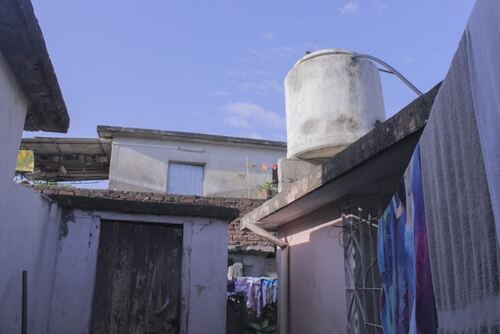Are you considering the best way to store water for your home or business? With various options available, choosing the right water storage system can be overwhelming. Some might lean towards plastic or metal tanks, but there’s a strong case for concrete tank systems.
Concrete water tanks offer numerous advantages, making them a superior water storage choice. These tanks are also highly customisable, allowing for a perfect fit in various settings and capacities. In this article, we’ll explore why concrete tank systems are better for storage, focusing on their durability, insulation properties, and environmental impact.
Benefits of Concrete Tank Systems
Durability That Stands the Test of Time
One of the most compelling reasons to choose these tanks is their remarkable durability. Concrete is inherently strong and resilient, making it ideal for long-term storage. Unlike plastic or metal, it does not rust or degrade over time. This resistance to wear and tear ensures that they can last for decades with minimal maintenance. Additionally, they can withstand harsh weather conditions, including extreme temperatures and heavy storms.
Superior Insulation Properties
These tanks offer excellent insulation, which helps maintain the temperature of the stored water. This becomes especially crucial in areas where temperature fluctuations are extreme. Their thick walls provide a natural barrier against heat and cold, keeping the water inside at a consistent temperature. This insulation also reduces the risk of water freezing in colder climates, ensuring a steady supply even during winter. Moreover, the stable temperature inside it can help preserve the quality of the stored contents, preventing the growth of harmful bacteria or algae.
Environmentally Friendly Choice
Choosing these tanks is not just a practical decision but an environmentally responsible one. Concrete is made from natural materials, such as limestone and clay, which have a lower environmental impact than plastic or metal production. Furthermore, they can be recycled at the end of their life cycle, reducing waste and promoting sustainability. The production and transportation of concrete also require less energy, resulting in a smaller carbon footprint. By opting for this system, you’re making a choice that benefits both you and the planet.
Minimal Maintenance Requirements
Another advantage of concrete systems is their low maintenance needs. Concrete is resistant to many issues that commonly affect other materials, such as rust, UV degradation, and chemical reactions. It requires fewer inspections and repairs, saving time and money. Regular cleaning and occasional sealing are needed to keep it in optimal condition.
Versatile and Customisable
Concrete tanks are highly versatile and can be customised to suit various needs and preferences. Whether you need a small one for residential use or a large one for agricultural or industrial purposes, concrete can be moulded into various shapes and sizes. This flexibility allows for installing them in different locations, whether underground, above-ground, or partially buried.
Enhanced Water Quality
The water quality stored in these tanks is often superior to that in other materials. Concrete’s natural properties do not leach harmful chemicals into the water, unlike plastic tanks, which may release toxins over time. This makes concrete tanks an ideal choice for storing drinking water, ensuring that it remains safe and clean for consumption.
Cost-Effective Investment
While the initial cost of installing a concrete tank may be higher than other options, it is a cost-effective investment in the long term. Their durability, low maintenance, and extended lifespan translate to fewer replacements and repairs. Additionally, their enhanced quality and insulation properties can lead to savings on treatment and energy costs.
Concrete water tanks provide a robust, reliable, and environmentally friendly solution for water storage. By choosing them, you invest in a long-lasting and versatile storage solution and contribute to environmental sustainability. They are the best option for dependable and high-quality storage systems.




